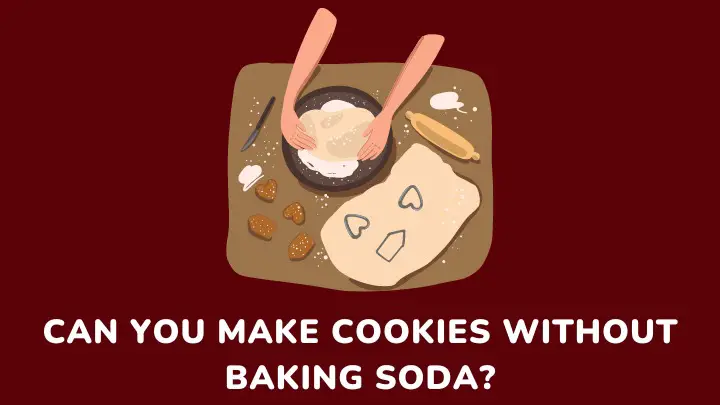Baking soda is one of those ingredients you most likely cannot do without when baking cookies. Adding baking soda raises the pH of the mixture and allows the cookies to spread evenly, thereby allowing even baking.
A high pH slows protein coagulation as the dough sets properly before the egg. All these are necessary for even baking. Baking soda also allows cookies to rise properly and is responsible for the signature light and fluffy texture of cookies.
However, people have been asking about the possibility of baking cookies without baking soda. Well, the beauty of baking is improvisations and substitutions. So, come along to find out if you can make cookies without adding baking soda to the dough.
What exactly is baking soda and is it always important?
Baking soda is a leavening agent that becomes active when it comes in contact with an acidic ingredient. It creates bubbles in dough or batter and makes it rise properly. Baking soda makes baked goods tender, moist, and fluffy.
Adding baking soda to your dough or batter is necessary, especially if you want a light and airy texture. However, some people leave it out of their recipe, not because they have no baking soda at home, but because they want to make chewy and dense cookies.
Also, some people are allergic to baking soda. However, this is rare. For any of these reasons people do not use baking soda in baked goods, they either leave it out completely or get substitutes.
Yes, you can make cookies without baking soda. Baking soda does not influence the taste of your cookies, so omitting it does not make them less delicious.
What the absence of baking soda does to your cookies is to make them thicker and chewier. Cookies without baking soda are dense because there was no chemical reaction to create the bubbles that make the cookies rise.
The cookies also come out flatter than usual. If you are fine with this appearance and texture, you can go ahead to make cookies without it.
Moreover, some cookie recipes do not require baking soda. If you find a recipe like that, go ahead with it.
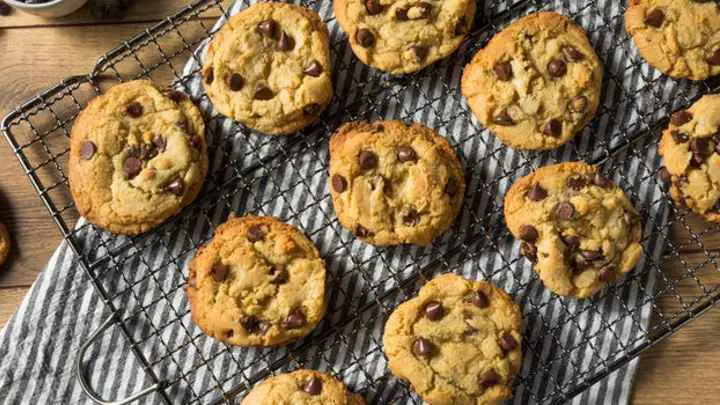
- Flourless chocolate cookies
- Cinnamon-raisin oatmeal cookies
- Peanut butter chocolate chip cookies
- Sugar cut-out cookies
- Chocolate coconut macarons
- Shortbread cookies
- Spritz cookies
- Cranberry thumbprint cookies
- Spiced poppy seed shortbread cookies
- Chocolate polvorones (Mexican wedding cookies)
- Cranberry-almond chocolate cookie thins
- Stained glass sugar cookies
- Chewy oatmeal coconut cookies
- Lemon thins cookies
- Almond chocolate cherry cookies
- Gluten-free carrot cake oatmeal cookies
Baking powder
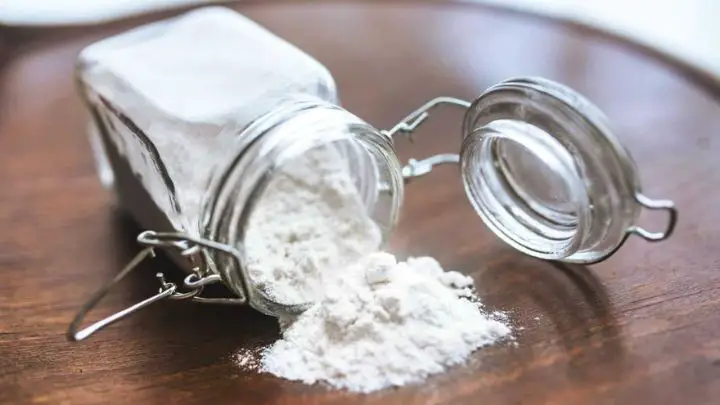
This is the number one substitute for baking soda because it is also a leavening agent. It can also produce bubbles in doughs and batters and cause them to rise and expand.
Baking powder is a form of diluted baking soda. It is made of cornstarch, salt, and baking powder. It makes cookies cakier with a tight top and smooth crumb whereas baking soda gives cookies a coarse crumb with a craggy top.
To make this substitution and get better results, use 4 teaspoons of baking powder for every 1 teaspoon of baking soda.
If you have acidic liquids like lemon juice or buttermilk in your recipe, replace them with water to prevent any further reaction. You should also adjust the salt content because of the extra salt in the baking powder.
Club soda
Club sodas are commercial fizzy beverages such as Schweppes, Canada Dry, and Polar. This substitute is quite different from others on this list because it is liquid. It is water that contains carbon dioxide.
This carbon dioxide creates bubbles in cookie dough and makes it rise as baking soda does. Because it is a liquid, club soda is best for recipes that require no more than ½ cup of liquid.
To make this substitution, use ¼ cup of club soda for every ¼ cup of liquid the recipe requires. That is, do not add any other liquid to the recipe if you are using club soda.
Club soda works quickly. So, you need to start mixing immediately. It would be best if you also started baking the cookies immediately because the bubbles will start popping immediately.
Whipped egg whites
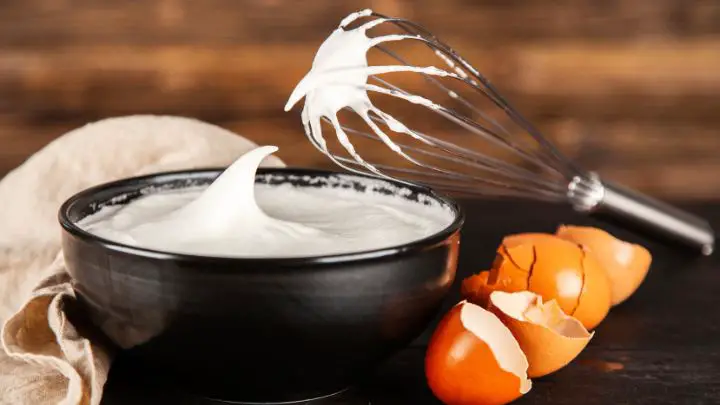
Whipped egg whites are commercial leavening agents that cause baked goods to rise, expand, and lighten. As you whip egg whites, tiny bubbles form in them, making them light and airy.
To substitute baking soda with egg white, replace one egg white with every ½ teaspoon of baking soda.
For best results, whip egg whites with cream of tartar or lemon juice to make it foamy and to add more volume to your baked goods. Instead of mixing other ingredients into the whipped egg whites, fold them into it.
Self-rising flour
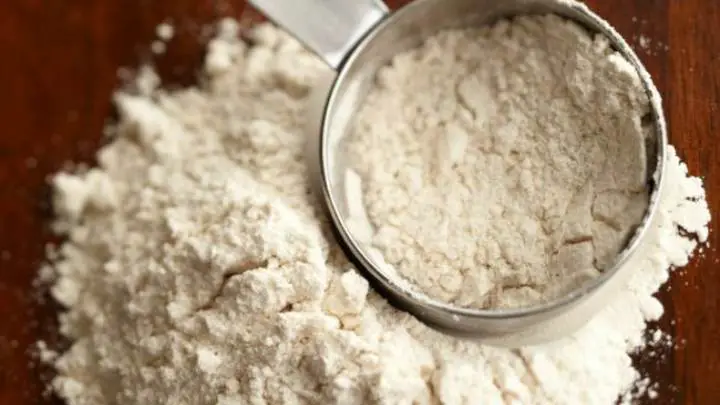
Self-rising flour is flour that contains baking powder and salt. If you run out of baking soda and you have self-rising flour, then, you can make cookies.
Do not add extra all-purpose flour if you are using self-rising flour. This flour has leavening agents that cause doughs and batters to rise.
However, because baking powder is not as strong as baking soda, you might need to add extra baking powder for better results.
One cup of self-rising flour contains 1 ½ teaspoons of baking powder. Ensure that the total amount of baking powder in the flour and the extra you use is 3 to 4 times the amount of baking soda you would use.
You can also make self-rising flour at home with baking powder, salt, and all-purpose flour.
Potassium bicarbonate
Potassium bicarbonate is a leavening agent like baking soda but is more commonly used as a dietary supplement. Aside from cookies, it can also be used as a baking soda substitute in cake and muffin recipes.
When using potassium bicarbonate as a baking soda substitute, you will have to add extra salt to the recipe because it does not contain salt. Add ¼ to ½ teaspoon of salt to every 1 teaspoon of potassium bicarbonate then make the substitution in a 1:1 ratio.
Baker’s ammonia
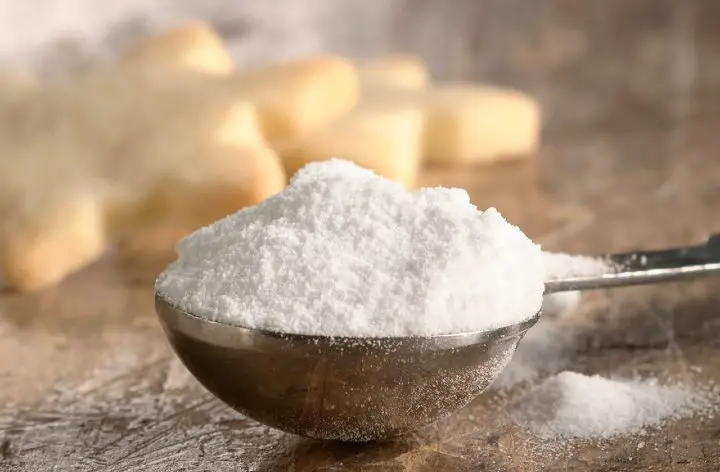
Baker’s ammonia or ammonium carbonate is a baking soda substitute for cookies but not for all types of cookies. Cookies with high moisture content like cakey cookies do not come out well with baker’s ammonia. It is better for thin and crispy cookies that do not need moisture.
The good thing is baker’s ammonia works just like baking soda. So, you can do a 1:1 substitution.
FAQs
Can you make cookies with baking soda and baking powder?
Yes, you can. Using baking soda and baking powder in cookies ensures that the cookies rise properly and have a perfect texture.
If you have a recipe like this, ensure you stick to the recommended measurement. Also, be sure that your baking powder and baking soda are still in date.
Do cookies need baking soda more than baking powder?
The leavening agent your recipe requires the most depends on the texture you want to achieve. Use baking soda for an open, coarse crumb with a craggy top. Baking powder, on the other hand, will give your cookies a fine, tight crumb with a smooth top.
In addition, both ingredients are leavening agents but baking soda is 3 to 4 times stronger than baking powder. Therefore, if you want to achieve a baking soda result with baking powder, you will need to add 3 to 4 times more baking powder.
Can cornstarch be used as a substitute for baking soda?
Cornstarch and baking soda look alike, but they are two different ingredients. Cornstarch is a thickener, whereas baking soda is a leavening agent.
While baking soda is necessary for making cookie dough rise and spread evenly cornstarch can only help soften the cookies. Also, although it is not very obvious, baking soda adds a light flavor to cookies, which cornstarch cannot do because it is tasteless.
All ingredients that go into cookies are important, but butter, eggs, and sugar are the most important. These ingredients directly affect the taste of your cookies.
Most importantly, work with premium ingredients. Ensure you are using fresh ingredients that are still in date. Also, use them in the right measurements. Follow a recipe if you have one on hand.
Conclusion
Cookies without baking soda can be a baking error or not. It all depends on your recipe and desired outcome. While some may argue that the best cookies contain baking soda, others do not agree with this argument. Neither is wrong because you can make cookies with or without baking soda.
You can pick a baking soda substitute, look for a cookie recipe that does not require baking soda, or leave it out entirely. When making cookies without baking soda, ensure you are generous with other ingredients so you do not end up with a boring tray of cookies.
If your cookies come out too hard, here are a few tricks to help you soften cookies and make them fresh and edible again.
Thanks for reading.
